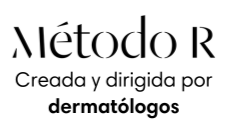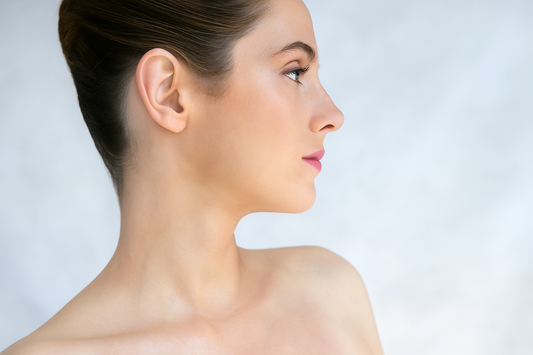The Enigma of Aging
There are many theories about aging and there are several aspects that we have not yet been able to decipher. But we do know that during the aging process, the body's cells are exposed to factors that generate free radicals, unstable molecules with unpaired electrons. These free radicals can damage cells and cellular structures, a phenomenon known as oxidative stress. Epigenetics has recently been added to this enigma and studies are being carried out on how it influences skin aging and how antioxidants and other compounds can influence epigenetic modifications to promote health and longevity.
Diet, lifestyle, nutrition, and a proper cosmetic routine can influence antioxidant levels and exposure to oxidative stress and help maintain the integrity of epigenetic marks.
Cellular reprogramming, a process that can reverse the differentiated state of a cell, has demonstrated the ability to restore epigenetic marks. This suggests that, at least at the cellular level, some of the epigenetic modifications associated with aging may be reversible. There is still much to study but just in case, we strictly follow what science has already confirmed to us that is beneficial for the skin.
What are Antioxidants?
Antioxidants play a crucial role in healthy aging, they are molecules that neutralize free radicals, thus helping to prevent oxidative stress and associated cellular damage. Free radicals are unstable molecules that are generated as a result of environmental factors, such as sun exposure, pollution, and cigarette smoke, as well as internal processes in the body. These free radicals can damage skin cells and contribute to premature aging.
Benefits of Antioxidants in skin care and how they contribute to healthy aging:
Neutralization of Free Radicals:
Antioxidants act by neutralizing free radicals, preventing them from causing damage to skin cells. By doing so, they help prevent oxidative stress, which is a key factor in premature aging.
Protection against UV Damage:
Exposure to ultraviolet (UV) radiation is one of the main causes of premature skin aging. Antioxidants, such as vitamin C and vitamin E, can help protect skin against damage caused by UV radiation.
Stimulation of Collagen Production:
Some antioxidants, such as vitamin C, have the ability to stimulate collagen production in the skin. Collagen is an essential protein that provides structure and firmness to the skin, and its loss is common during aging.
Reduction of Inflammation:
Some antioxidants have anti-inflammatory properties, which helps reduce inflammation in the skin. Chronic inflammation can contribute to premature aging and skin problems such as acne.
Unifies the tone and provides luminosity:
Vitamin C can inhibit the production of melanin, the pigment responsible for skin color. By interfering with the melanin production pathway, vitamin C helps reduce the appearance of dark spots and hyperpigmentation. This contributes to a more uniform and luminous appearance of the skin. Vitamin C can also interfere with the transfer of melanin to skin cells, preventing dark spots from developing or intensifying.
Improved Skin Texture:
By protecting against oxidative stress and stimulating collagen production, antioxidants can contribute to smoother skin with improved texture.
Maintenance of the Skin Barrier:
Some antioxidants, such as vitamin E and niacinamide, can help maintain the integrity of the skin barrier, which is essential for retaining moisture and protecting against external irritants.
Repairing Effects:
Some antioxidants also have restorative effects on the skin, contributing to the repair of damaged cells and supporting cell regeneration.
Our recommendation, regardless of age, gender or preferences, all people should include antioxidants in their cosmetic routine and also in their diet. Antioxidants are found in a variety of foods, such as fruits, vegetables, nuts, and whole grains. Additionally, our Antiox Serum .
Integrating antioxidants into both your diet and skin care routine can help maintain skin health and vitality as you age. As research progresses, it is expected that more connections will be identified and strategies developed to promote healthy aging and delay the effects of time on the body. We will undoubtedly be attentive and will keep you informed of all the news in this field.
Antioxidants and Longevity
Many age-related diseases, such as heart disease, diabetes, and neurodegenerative diseases, have an oxidative stress component. By helping to prevent or reduce oxidative stress, antioxidants can influence the prevention of these diseases and, therefore, contribute to greater longevity.
It is important to note that the relationship between antioxidants and longevity is an area of active research, and the specific evidence may vary depending on the type of antioxidant, its dosage, and the population studied. In addition, a balanced diet and other healthy lifestyle habits, such as regular physical activity and abstinence from tobacco, also play a crucial role in longevity.
Most studies suggest that obtaining antioxidants through a balanced diet rich in fruits, vegetables, nuts, beverages such as coffee and green tea, whole grains, and other healthy foods is preferable to relying on supplements.
In the case of the skin, in addition to a diet rich in antioxidants, several topical antioxidants have demonstrated their unquestionable effectiveness in numerous scientific studies. It has been shown that topical application of vitamin C, E, ferulic acid and niacinamide can help reduce sun damage and signs of aging, including reducing wrinkles and improving skin texture. It may also have depigmenting and skin barrier protective properties, among others.
Importantly, the effectiveness of topical antioxidants may depend on several factors, including the concentration of the antioxidant in the product, the stability of the formulation, and the way the product is stored.
Antioxidant Recipes for a Balanced Diet
It is very easy to have a diet rich in antioxidants because they are present in fruits and vegetables, some nuts, aromatic herbs, cocoa, olive oil, green tea and coffee. The ideal is to have a very varied diet with natural products, to obtain different types of antioxidants. In Spain we are very lucky because the Mediterranean diet is full of antioxidants. Of course, we must try to avoid processed foods and everything that our grandmothers do not recognize as food.
Skin Care Routine for Healthy Aging
The diet good for the skin is the diet good for health. The skin is a reflection of what happens inside us and if we are healthy, our skin will look more beautiful.
We are lucky that on the skin, in addition to benefiting from the antioxidants that we consume in our diet, we can supplement it with topical cosmetics rich in these active ingredients. It is proven in numerous scientific studies that antioxidants improve your appearance and overall health.
Conclusions
In short, topical and dietary antioxidants play a key role in promoting healthy aging by reducing oxidative stress. We go one step further and talk about epigenetic reversibility at the cellular level and emphasize the importance of including antioxidants in the diet and in cosmetic products to combat free radicals, protect against UV damage, stimulate collagen production and improve our health and skin texture. We especially point out the relationship between antioxidants and longevity and recommend a varied diet rich in antioxidants, a skin care routine with antioxidant products, and we demand continued research in this field to better understand aging processes. Why do we want to have




